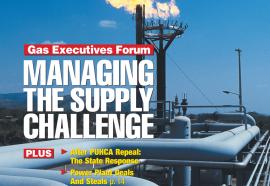A Brief History of Rate Base: Necessary Foundation or Regulatory Misfit?
Regulators today must define earnings for energy retailers virtually bereft of fixed assets.
Applying the traditional rate-base concept to the new hybrid companies is where the gap between the old and the new regulatory paradigms resembles a deep schism. The current shifts in regulation should cause regulators to revisit and reconsider concepts that once reigned supreme in ratemaking.






